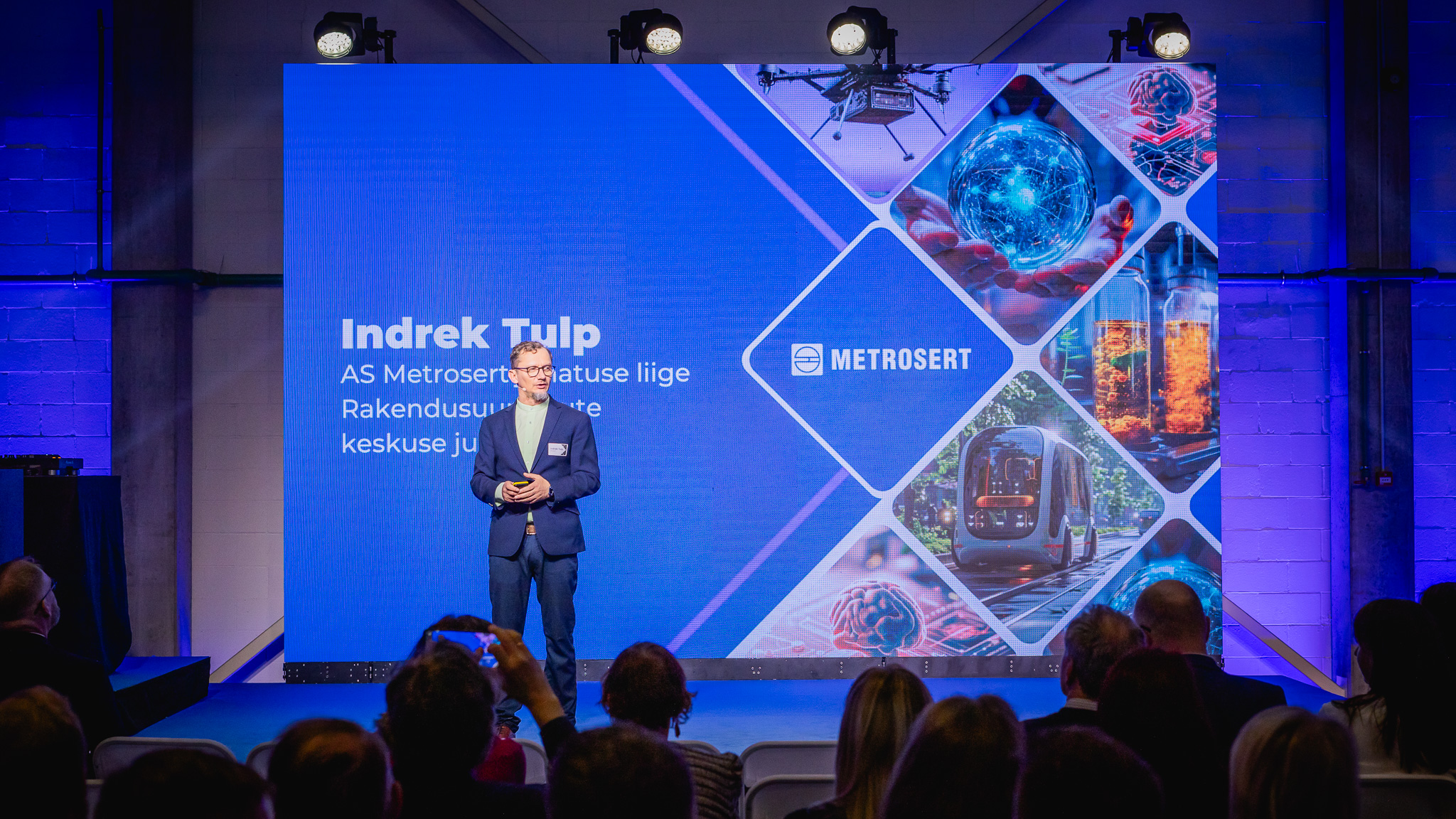This week, the state-owned company Metrosert officially inaugurated its long-awaited Applied Research Center, aimed at supporting the innovation and global competitiveness of Estonian companies. The center plans to open its first laboratories next year.
In collaboration with the EAS and KredEx joint agency, five sectors have been identified as having the highest potential for increasing Estonia’s competitiveness through the cooperation of scientists and companies: biorefining, drone technologies, hydrogen technology, autonomous vehicles, and health technologies.
“The world is increasingly becoming science- and technology-based. Looking to future developments, we need more plant-based protein instead of animal protein, more precise diagnostics and better treatments based on digital health data, carbon-free energy production, efficient autonomous transport solutions, and top-notch military deterrence. These are just some examples of global critical challenges where Estonia can also be at the forefront,” said Indrek Tulp, head of the Applied Research Center at Metrosert, at the opening event.
According to Tulp, Metrosert’s new center fills a gap that has been a bottleneck for Estonian innovation – how to apply knowledge in the most efficient way. “We are positioned in the middle of the development chain – where fundamental scientific discoveries no longer occur, but the risks of applying knowledge as products and services are still too high. We can soon offer companies ready-made industrial test environments suitable for different enterprises and help with capital raising for research and development. We invite innovation-driven companies to explore collaboration opportunities, especially in our target areas,” added Tulp.
Ahti Kuningas, Secretary General of the Ministry of Economic Affairs and Communications, highlighted that Estonia is at the forefront of the world in PISA test results and basic research success, but not in applying knowledge in real life. “The need for a research institution very close to product development has been discussed for more than ten years, and now it has finally been established. Metrosert is a public limited company – this means it has a clear commercial focus. The measure of success for the Applied Research Center is the marketable solutions it helps companies create,” said Kuningas.
Maive Rute, Deputy Director-General for the Internal Market, Industry, Entrepreneurship, and SMEs at the European Commission, noted that global competition is fierce and developing industrial policy has also become a priority in Europe. “We are entering the practical application of knowledge-intensive technology in Estonia just in time. I believe that the Applied Research Center will become a driving force for the key sectors of the Estonian economy,” said Rute and continued, “Instead of distributing a bit of money everywhere, it is more effective for economic development to select sectors where resources are consciously concentrated and then ensure that investments do not go to waste.”
According to Indrek Tulp, the head of the Applied Research Center at Metrosert, the center aims to open its first laboratories next year. The most advanced preparation has been made for a comprehensive biorefining laboratory, planned to be operational in early autumn 2025. “The biorefining pilot plant will feature giant tanks enabling industrial production testing of up to 5,000 liters. This will be a unique test environment for developing biofuels, bioplastics, or food industries. No such capability exists in the neighboring region, but entrepreneurs need it for their product development,” explained Tulp, adding that the center does not aim to duplicate anything but to create what is missing.
In the field of autonomous vehicles, Metrosert plans to create a mobile innovative test environment that car manufacturers worldwide can use to offer vehicles to the European market. The test lab will test compliance with pan-European type approval, ensuring that tested vehicles move safely and legally throughout Europe.
In the field of drone technology, the center aims to become the state’s competence center in unmanned aviation, and in hydrogen technology, Estonia is seen as having the potential to become a technology-exporting country. The new center will primarily contribute to the development of health services and products through scientific analysis of health data.
The number of employees at Metrosert’s Applied Research Center is expected to grow from the current 15 to around 70 in 3-5 years. Altogether, with metrology and certification activities, Metrosert employs over 150 people in knowledge-intensive services. The state will invest at least 16 million euros in the Applied Research Center by 2026.
